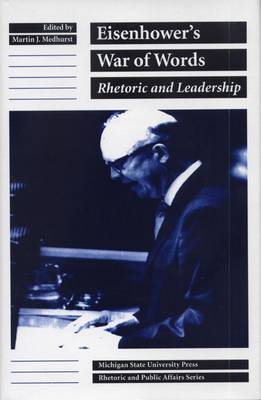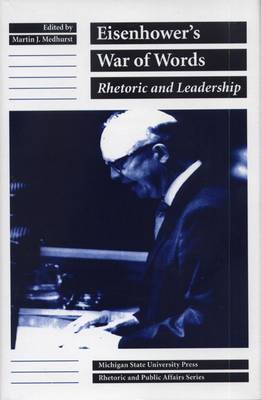
- Afhalen na 1 uur in een winkel met voorraad
- Gratis thuislevering in België vanaf € 30
- Ruim aanbod met 7 miljoen producten
- Afhalen na 1 uur in een winkel met voorraad
- Gratis thuislevering in België vanaf € 30
- Ruim aanbod met 7 miljoen producten
Omschrijving
This volume paints a revisionist portrait of Dwight Eisenhower as a strategic communicator who was highly involved in the series of crises that characterized his administrations. As a consummate cold warrior, Eisenhower understood that words, images, perceptions, and the shaping of attitudes were central to the ongoing battle with the Soviet Union. He used rhetoric--actions and messages intentionally designed to persuade--to achieve many of his goals. To Ike, rhetoric was the central weapon for waging--and winning--the cold war. Understood as a strategic art of selection, arrangement, nuance, timing, and audience adaptation, rhetoric became, for Eisenhower, the preferred means for conflict resolution.
Examining both foreign and domestic crises, Eisenhower's War of Words reveals a chief executive who was always thinking, planning, and looking for the opportune moment to strike. Individual chapters are devoted to the crises concerning Vietnam, McCarthyism, the H-bomb, massive retaliation, Open Skies, the Suez, Sputnik, Little Rock, the U-2 Affair, and the military-industrial complex. Eisenhower's rhetorical leadership saw America through a decade that was anything but tranquil. This book examines one of the primary means by which he accomplished that goal.
Specificaties
Betrokkenen
- Uitgeverij:
Inhoud
- Aantal bladzijden:
- 318
- Taal:
- Engels
- Reeks:
Eigenschappen
- Productcode (EAN):
- 9780870133404
- Verschijningsdatum:
- 30/04/1994
- Uitvoering:
- Hardcover
- Formaat:
- Genaaid
- Afmetingen:
- 159 mm x 237 mm
- Gewicht:
- 712 g

Alleen bij Standaard Boekhandel
Beoordelingen
We publiceren alleen reviews die voldoen aan de voorwaarden voor reviews. Bekijk onze voorwaarden voor reviews.








